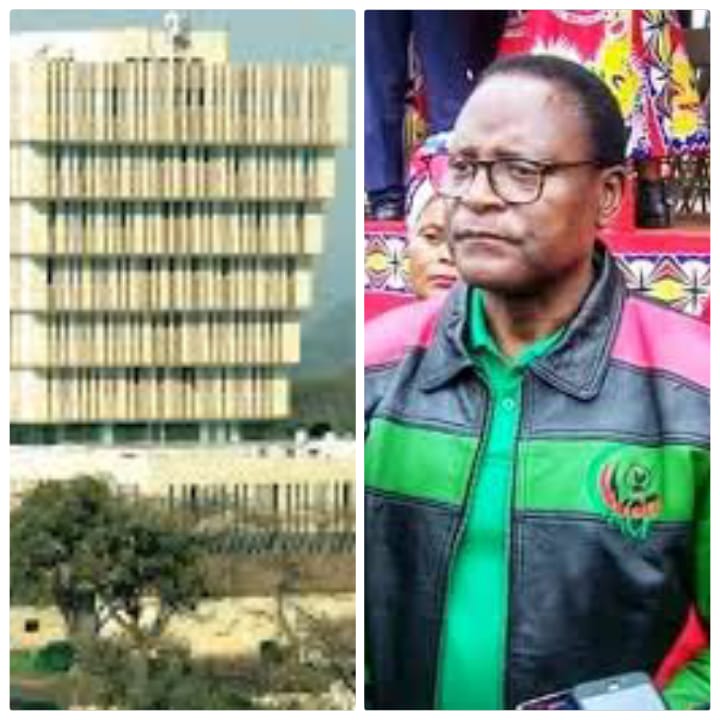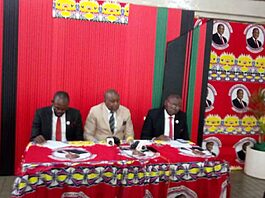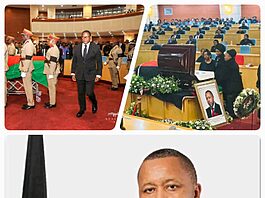
17 Principal Secretaries in just four ministries plus another 6 ‘doing nothing’ at the OPC after being removed from ministries by the new administration — how President Lazarus Chakwera’s Tonse Alliance government seems to find pleasure in blowing taxpayers’ money

LILONGWE-(MaraviPost)-At a time President Lazarus Chakwera’s Tonse Alliance government is preaching austerity measures in a bid to rescue the floundering economy, there are trends aplenty contrary to that gospel.
Here is one example: The government has 17 principal secretaries just in four ministries.
Add that to another 10 at the Office of President and Cabinet where most of them are literally doing nothing, the bill on the taxpayer is significant.
Previously, most ministries used to be run by a single or a maximum two principal secretaries. That seems to be fast changing: Ministries of Finance, Health, Agriculture and Trade have a total of 17 PSs.
According to Malawi News, three PSs are at the Ministry of Trade and include Christina Zakeyu as the controlling officer; Nwazi Nthambala for Trade and Francis Zhuwao who is responsible for small medium enterprises.
At the Ministry of Agriculture, Sandramu Maweru is the controlling officer; Geoff Mamba responsible for irrigation and Medrina Mloza Banda responsible for technical services. The two were appointed in those capacities on August 5.
Ministry of Agriculture spokesperson Gracian Lungu confirmed the three being at the ministry. He said “previously we had Erica Maganga as controlling officer for the Agriculture Ministry and Sandramu Maweru as Irrigation PS.”
At the Ministry of Health, there are five PSs: Charles Mwansambo as controlling officer; Beston Chisamile as PS for Administration; Queen Dube as Chief of Health Services responsible for technical services, Dan Namarika who is seconded to Kamuzu University Health Sciences and Getrude Hiwa, formerly Solicitor General and PS for Ministry of Justice.
We failed to verify Hiwa’s case as the ministry’s spokesperson said he was out of town but a source confirmed Hiwa’s movement to the ministry.
At the Ministry of Finance, the PSs include McDonald Mafuta Mwale as Secretary to the Treasury; Winford Masanjala responsible for Economic Planning and Development; Patrick Zimpita for Public Sector Investment Plan; Richard Perekamoyo for administration; Ted Sitimawina for economic affairs and Jean Munyenyembe as Accountant General, a position which is at PS level.
The OPC has about 10 PSs but the known key positions, as past trends show, are Colleen Zamba as Secretary to the President and Cabinet, Janet Banda as deputy SPC, Dickson Chunga, Principal Secretary for Administration (PSA) and Blessings Chilabade for the Department of Human Resource Management and Development.
The other six are PSs removed from ministries by the Chakwera administration and assigned to “special duties”. Government is paying them PS salaries and other benefits for doing ‘almost nothing’.
So, how much money are taxpayers bleeding to finance these PSs?
A Principal Secretary gets a monthly salary of around MK1,885,029; 500 litres of fuel per month and K50,000 airtime per month plus an entitlement of a TX Prado vehicle.
According to a circular from PS DHRMD, reference number HRM/RS/01 on revision of salaries in the civil service dated April 28, 2022, a salary for a PS is at MK22,620,348.00 per annum which translates into MK1,885,029 per month.
This means that for the 17 PSs, the government is spending roughly MK49.2 million for their salaries, fuel and airtime per month. This translates to around MK590.5 million per year.
What if the four ministries had a PS each?
If the four ministries had four PSs in total, the government would have been paying them MK7,540,116 salaries per month which translates into K90,481,392 per year.
For fuel, the government would have been paying them K3,840,000 per month and MK46,080,000 per year.
For airtime, the government would pay MK200,000 per month and MK2,400,000.00 per year.
In total, the government would spend MK138, 961, 393 for salaries, fuel and airtime on the four PSs per year.
We sought government’s justification for this number of PSs at the four ministries and OPC.
Government spokesperson, who is also Minister of Information and Digitalisation, Gospel Kazako referred us to the SPC.
Zamba did not respond to our questionnaire sent to her on Thursday and she did not answer our phone calls yesterday.
OPC spokesperson Milca Manyozo said she was not in office and would be able to look at the questionnaire on Monday afternoon.
But Director of Centre for Research and Consultancy Milwad Tobias has described this as lack of fiscal discipline and conscience on the part of the government regarding the implementation of austerity measures.
He said the reason why the government has many PSs is because of its appetite to hire people from outside the public service and to reward political supporters, defeating the purpose of the public service reforms agenda.
“Under normal circumstances, an officer gets promoted to occupy a vacant senior position. However, what we have seen over the years is where a person is appointed from outside the public service to become a director or PS.
“We have also seen people appointed as State House staff and later sent to mainstream civil service,” Tobias said.
He added: “One reform in the Public Sector Reforms agenda was right-sizing the civil service. Those who were classified PS2 and PS3, as the case was, were reclassified as Chief Director.
“The change did not affect the wage bill but sanitised reporting and accountability. Now, there is a reversal to the old formation as we saw appointments of new principal secretaries in agriculture recently.”
That government is unwilling to meet the prescriptions of those reforms indicates the wastage of time and resources invested in functional reviews over the years, he said.
According to him, most of the work in ministries, departments and agencies is done by directors, hence no need for many PSs.
“This is a sad state of affairs which signals the failure of public sector reforms. It is an unfortunate portrayal of the state of political capture that civil service finds itself, a manifestation of the triumph of partisan politics which favours some PSs and condemns others,” he said.
On May 31, 2022, President Lazarus Chakwera announced 15 austerity measures for his government in the wake of the economic challenges.
Some of the measures are a cut on foreign trips to three for government officials, including himself, for the remainder of the year; no top-up allowances for public officers on fully funded trips for work, training, workshops, or conferences and public officers travelling outside the country flying on economy class.
When he presented the 2022 — 2023 national budget on February 18, 2022, Minister of Finance and Economic Affairs Sosten Gwengwe announced that the government would put expenditure control measures for the year.
The measures included reviewing benefits and entitlements for senior government officials, including the Presidency and Cabinet Ministers; reviewing the Government Motor vehicles policy with an aim of reducing expenditure in terms of number, types and sizes of motor vehicles; continuing with the installation of pre-paid utility meters in all government institutions without exception.
Source: Malawi News






